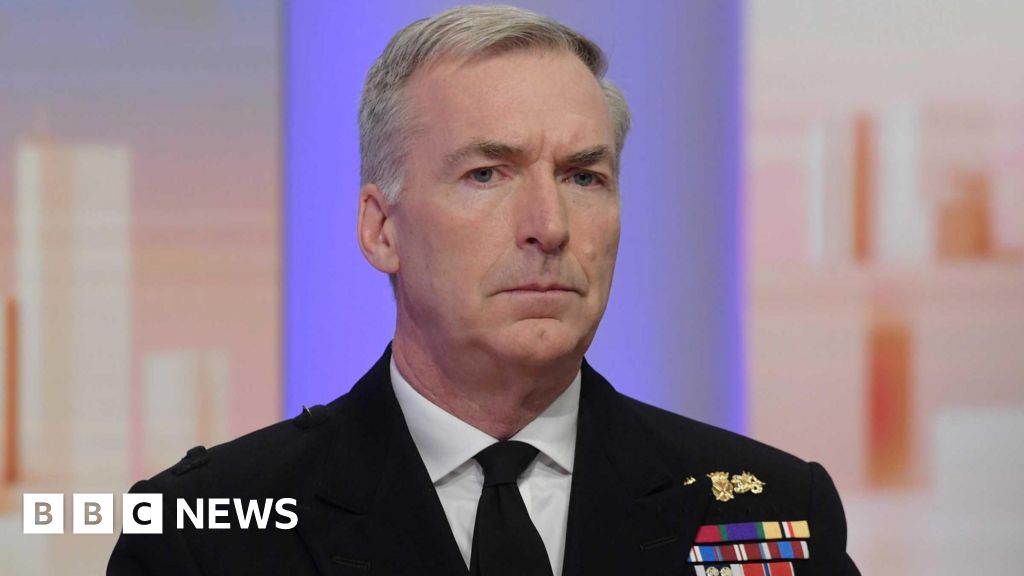Admiral Radakin added that Russian President Vladimir Putin is aware of the UK’s nuclear arsenal and said it has more impact on him than other threats.
Successive British governments had invested “substantial sums of money” in renewing nuclear submarines and warheads because of this, he said.
He said it was necessary to keep the UK’s nuclear deterrent strong, describing the first nuclear age as the Cold War and the second characterised by disarmament efforts and “counter proliferation”.
“We are at the dawn of a third nuclear age, which is altogether more complex,” he said.
This era is more dangerous than any he has known in his career and the world more contested than ever, he added.
Reiterating a pledge to raise defence spending, he argued that “the cost of defence and deterrence is always less than the costs that flow from instability and conflict”.
The government has committed to increase defence spending to 2.5% of GDP, but has refused to say when it will meet this target.
Spending more on defence would be politically controversial because it would mean less for other public priorities such as health and education.
Any increase on the 2.5% target – which many analysts believe will be necessary and the US may even demand – would require popular support.
To do that, Admiral Radakin said he wants to give voters a sense of what he calls “the tragedy of war” without having to experience it – by warning about the scale of the threat the UK is facing.
His warning is stark and designed, as he said, both “to reassure the nation and stiffen its resolve”.
“Do we understand what is at stake? And are we sufficiently motivated to respond?” he said.
In other words, how can voters begin to understand that there is no more peace dividend which they have enjoyed over the last three decades since the Iron Curtain came down.
This will be a core argument that underpins the government’s strategic defence review, which will be released next year and set out what military capabilities need to be changed to face future threats.
Admiral Radakin said Britain needed to be “clear-eyed in our assessment” of the threats it faces.
“That includes recognising that there is only a remote chance of a significant direct attack or invasion by Russia on the United Kingdom, and that’s the same for the whole of Nato,” he told the audience.
A spokesperson for the prime minister’s office said Defence Secretary John Healey had previously spoken about “the state of the armed forces that were inherited from the previous government”.
The spokesperson said: “It’s why the Budget invested billions of pounds into defence, it’s why we’re undertaking a strategic defence review to ensure that we have the capabilities and the investment needed to defend this country.”
The armed forces chief’s speech follows Prime Minister Sir Keir Starmer warning earlier this month that the post-war years of ascendancy were over, and the UK had to emerge “from that twilight of naivety” and “dig deeper” to defend its national interests.
Defence minister Alistair Carns has also warned a major war would lead to the army being wiped out within six to 12 months.
He told an audience at the same think tank that Britain needed reserves in order to be able to fight in a “war of scale”.
Official figures show the army had 109,245 personnel on 1 October, including 25,814 volunteer reservists.

